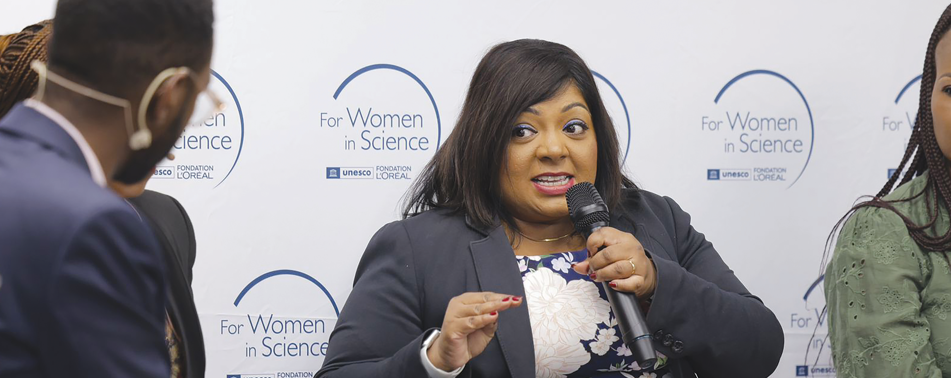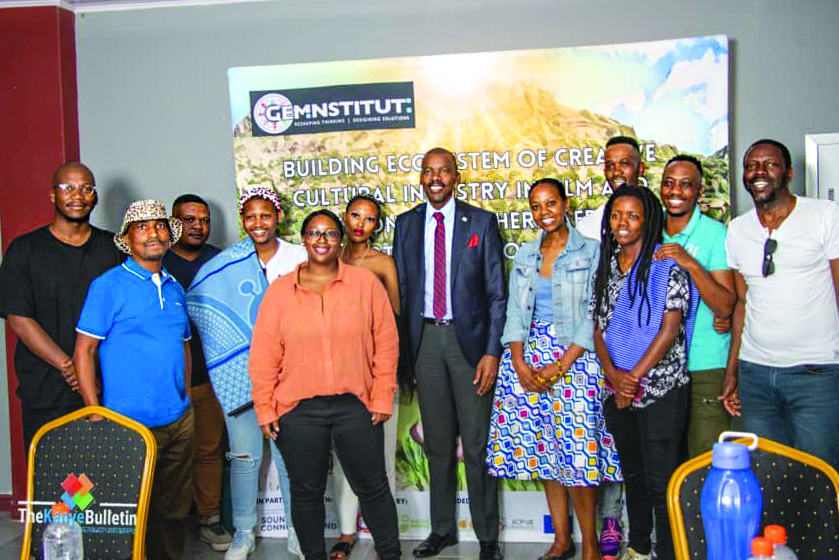Nthatuoa Koeshe
According to the United Nations Educational Scientific and Cultural Organisation (UNESCO), more than 400 journalists across the globe die each year as a result of violence meted against them for simply doing their jobs, a feat which muzzles enjoyment of press freedom and freedom of expression.
This emerged in the 2022 message of support offered by the UN agency at the event of the commemoration of the World Press Freedom Day (WPFD) in Maseru this week.
Speaking at the event, Minister of Communications, Science and Technology, Tṡoinyane Rapapa said WPFD serves as a reminder to government’s respect to its commitment towards ensuring press freedom, and that it is a day of rethinking among media professionals about issues of press freedom and professional ethics.
“This is a day to support media which are targets especially during the era of technology when information is moving at a rapid rate thus posing challenges such as forged information in circulation on different social media platforms†Rapapa said.
Rapapa said this year’s theme seeks to bring together journalist, media representatives and activists, cyber security managers and legal expects including policy makers to develop concrete solutions meant to tackle threats posed to press freedom and privacy.
WPFD is celebrated annually in May 03 in recognition of the Windhoek Declaration of 1991 under different themes in line with freedom of the press and of expression. The day’s commemoration is often held spearhead by media rights group Media Institute of Southern Africa Lesotho in collaboration with other stakeholders such as UNESCO.
This year’s commemoration was held under the theme: ‘Journalism under digital siege’, and was marked by a dialogue that sought to highlight of media and journalism status in the era of cyberspace and advanced technology.
Lesotho commemorated the day with panel discussions on, the media in the face of digital disruptions, media viability and sustainability in the digital age, unpacking twin concepts of media freedom and form of expression of opinion and prospects for regulation of Lesotho’s media in the 21st century.
Discussion panelists included Newsday Media Managing Editor Lerato Matheka, Sky Alpha HD Managing Director Kabello Mollo, The Post Newspaper Editor Shakeman Mugari, MISA-Lesotho National Director Lekhetho Ntsukunyane, MISA Secretary General Palesa Maharasoa and Lesotho Communication Authority’s Public Relations Manager Mothepane Kotele.
Meanwhile, addressing the same event, MISA Lesotho Chairperson Nkoale Oetsi-TÅ¡oana said threats to journalists and media workers are growing by the day.
“Journalists are subjected to threats and intimidations when doing their work and as we commemorate this day, we look at the media in terms of the challenges faced by the media and how they affect us,†he said, adding that Lesotho media practitioners deserve to celebrate as they take stock of their journey in the past year.
“When Covid-19 hit the country, no one knew what it was but the media was in the frontline to gather news and inform the nation.â€
He said covid-19 had contributed vastly to the spread of fake news and propaganda but the media was equipped by the World Health Organisation with what the pandemic was and informed the people thus saving lives.
As part of the presentations, Matheka touched on the disruptions that come with technology saying this can change the value of the industry’s existing services and goods.
“Digital disruption can be described as the change that happens when new digital technologies, services, capabilities and business models affect and change the value of the industry’s existing services and goods,†Matheka said.
She further indicated that the new elements change or disrupt the status quo, forcing businesses to reevaluate the current market regarding goods and services and possibly adjust.
She said digital disruptions have transformed the way the news is produced, delivered and consumed across the world.
“Consumers have now become participants and users rather than only being readers and viewers,†Matheka said adding that the disruption is forcing a change in the business models because of the rapid use of technology which if duly appreciated by journalists, breathes new life to their work.
She said the past 20 years have seen some global media companies crumble in the face of digital disruption, but many have survived and thrived. In Lesotho, while some media houses have chosen to remain with the traditional (print) media business model, some have ventured into exploring digital media space.
Maharasoa said Social media have become a norm around the world. She said recently, the Lesotho government introduced the Communications Regulations which required all people living or entering Lesotho to register their mobile handsets, tablets, and other devices that use a SIM card, and the SIM card itself.
“The regulations provided for the creation of a central database to store the information and force service providers to transmit all information captured from customers to the central database, and for the Lesotho Communications Authority (LCA) to hand over private communications to security agencies without involvement of courts of law,†she said pointing to such as deterrents to freedom of expression.
The day is commemorated across the world especially by countries making up the UN community. Festivities in its celebration have been ongoing throughout the week, the highlight of which will be today’s celebration where inter alia agents of a free press will be recognized as the Lesotho media sector prepares for general elections set for later in the year.
Summary
- Speaking at the event, Minister of Communications, Science and Technology, Tṡoinyane Rapapa said WPFD serves as a reminder to government’s respect to its commitment towards ensuring press freedom, and that it is a day of rethinking among media professionals about issues of press freedom and professional ethics.
- Lesotho commemorated the day with panel discussions on, the media in the face of digital disruptions, media viability and sustainability in the digital age, unpacking twin concepts of media freedom and form of expression of opinion and prospects for regulation of Lesotho’s media in the 21st century.
- “Journalists are subjected to threats and intimidations when doing their work and as we commemorate this day, we look at the media in terms of the challenges faced by the media and how they affect us,†he said, adding that Lesotho media practitioners deserve to celebrate as they take stock of their journey in the past year.

Your Trusted Source for News and Insights in Lesotho!
At Newsday Media, we are passionate about delivering accurate, timely, and engaging news and multimedia content to our diverse audience. Founded with the vision of revolutionizing the media landscape in Lesotho, we have grown into a leading hybrid media company that blends traditional journalism with innovative digital platforms.









